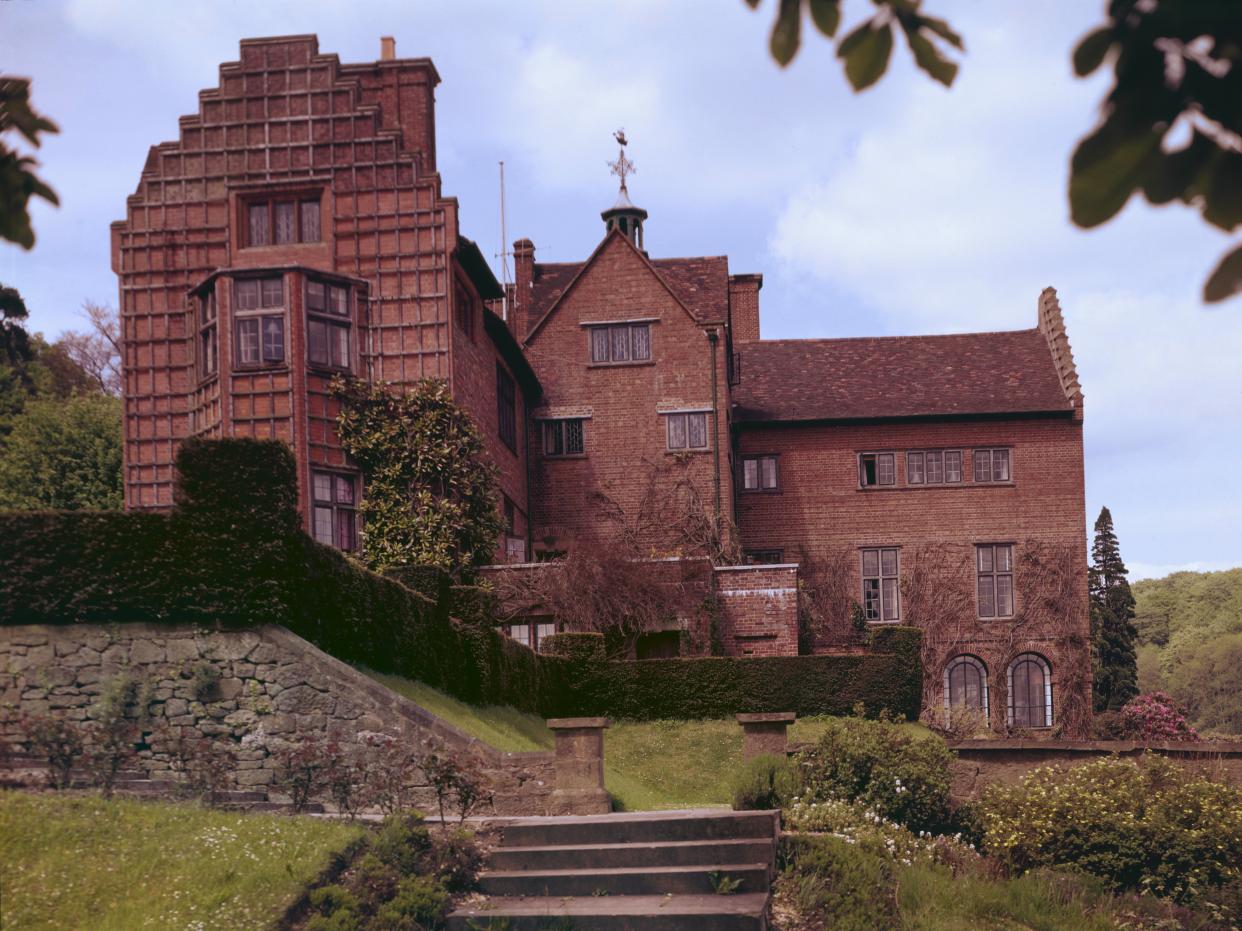National Trust lists Churchill's home among 93 properties with links to slavery and colonialism

The National Trust has revealed how more than 90 of its properties have links to slavery and colonialism.
The connections – at 93 properties – are highlighted in a report which was commissioned by the conservation charity last September, as part of efforts to tell the history of colonialism and slavery at its historic places.
The report details links to plantation owners and those who were paid compensation for enslaved people freed through abolition, as well as those who gained their wealth through the slave trade.
Properties with connections to people involved in colonial expansion, including leading figures in the East India Company, or senior figures in administering colonies, such as Winston Churchill's home Chartwell, are included in the survey.
In addition, those with important cultural links to Britain's colonial history, such as writer Rudyard Kipling's home in Sussex, Bateman's, or the home of historian Thomas Carlyle in London are also highlighted.
The report from the trust shows how estates and stately homes such as Clandon Park, Surrey, and Hare Hall in Cheshire, were linked to wealth from plantations or the slave trade.
Approximately 29 properties cared for by the National Trust have links to successful compensation claims as a result of the abolition of slavery, such as Glastonbury Tor in Somerset, and Blickling Hall, Norfolk, the report states.
It adds that Quarry Bank Mill, in Cheshire, was built using family wealth related to slavery, while Bath Assembly Rooms was connected to the wider colonial and slavery economies of the 18th century.
"A day away from Chartwell is a day wasted" - Sir Winston Churchill
©National Trust / Kate York pic.twitter.com/RFZRqdasta— ChartwellNT (@ChartwellNT) September 21, 2020
Powis Castle in Wales, with its links to Clive of India, and Cragside, Northumberland, which was home to Sir William Armstrong who supplied guns to British military forces, are also among those with imperial links.
The report also documents National Trust properties belonging to people who were involved in the abolition movement or the fight against colonial oppression, and highlights the presence of African, Asian and Chinese people working on English and Welsh estates.
The report draws on the Trust's own archives and external evidence such as the Legacies of British Slave-ownership project run by University College London.
Dr Tarnya Cooper, the National Trust's curatorial and collections director said: “The buildings in the care of the National Trust reflect many different periods and a range of British and global histories - social, industrial, political and cultural.
”A significant number of those in our care have links to the colonisation of different parts of the world, and some to historic slavery.
“Colonialism and slavery were central to the national economy from the 17th to the 19th centuries.”
Dr Cooper added that it was the National Trust's job, as a heritage charity, to research, to interpret and share full and up-to-date information about its properties.
“This report is the fullest account to date of the links between places now in the care of the National Trust and colonialism and historic slavery,” she said, adding that it was not exhaustive and would be added to as more research was done.
The research has been used to update online information and will be used to help the Trust review visitor information and displays at properties.
Last month, members of the National Trust threatened to cancel their subscriptions after the charity shared a thread on Twitter highlighting a series of objects on its sites that have links to slavery.
While some praised the organisation for highlighting Britain’s involvement in the slave trade, others accused the trust of “getting political”.
Many of the places we care for have direct or indirect links to slavery, including objects made from materials obtained by forced labour.
Today, as we mark the @UNESCO Day for the Remembrance of the Slave Trade and its Abolition, we take a closer look at these materials. pic.twitter.com/StFcyVifF7— National Trust (@nationaltrust) August 23, 2020
“Please do not ‘educate’ or lecture us,” one person wrote. “I go round houses to appreciate furniture, art and gardens. We don’t need to have your view of history forced upon us. We know our past was imperfect - think of the servants who worked there. Steer clear of politics - we go for pleasure.”
In response to the criticism, a National Trust spokesperson previously told The Independent: “We’re acutely aware the legacies of slavery and colonialism are reflected in the nations’ places, buildings and collections, including those looked after by the National Trust. We have recently completed a full survey of the places we care for to better understand these links and we will be publishing our findings soon.
“As a conservation organisation we believe the physical legacies of our histories, including buildings and objects, can help us learn from and understand the past.
“We do not accept racism or discriminatory language and are committed to creating a diverse, inclusive and welcoming environment for everyone.”
Read more
Make-up company WULT apologises after naming blush after Anne Frank


